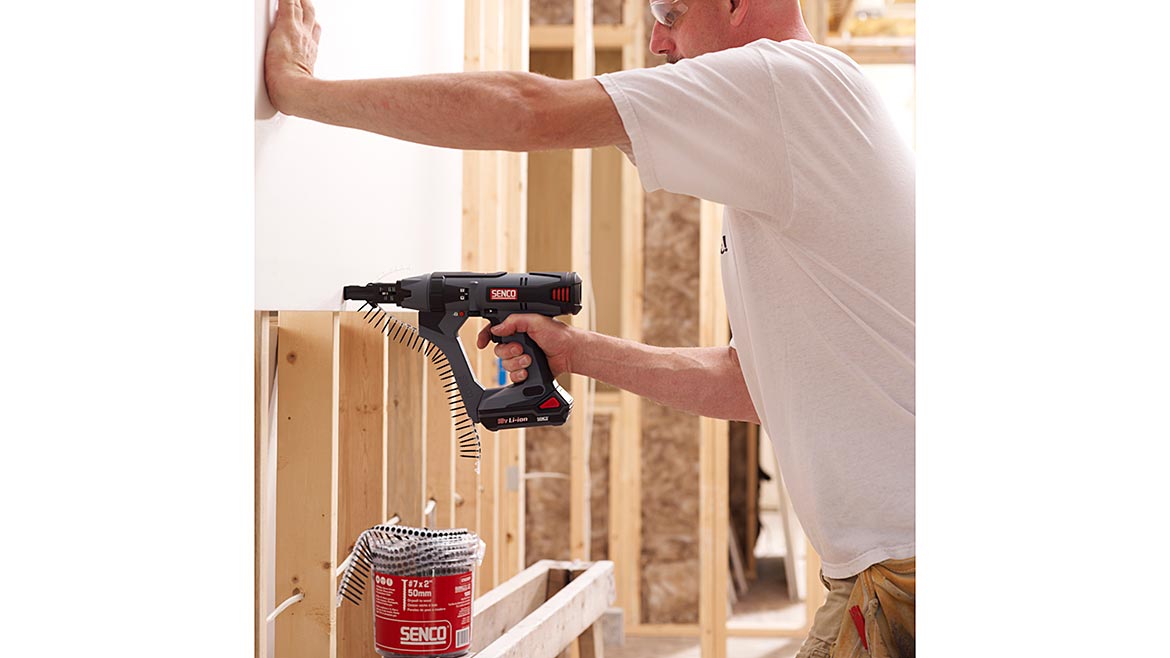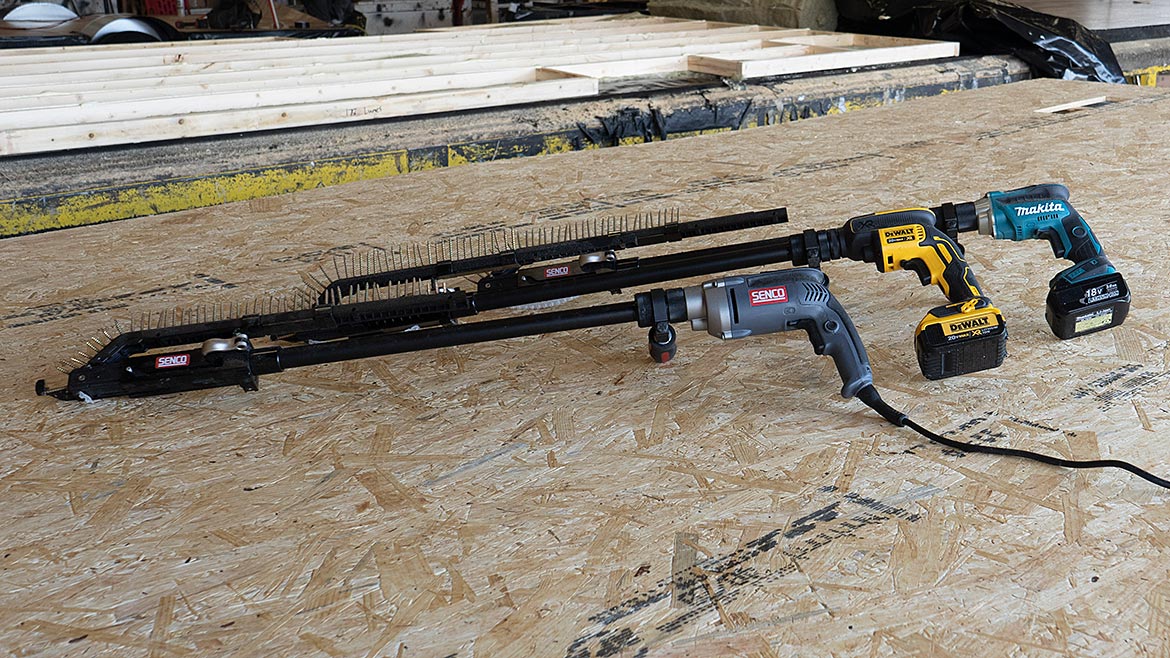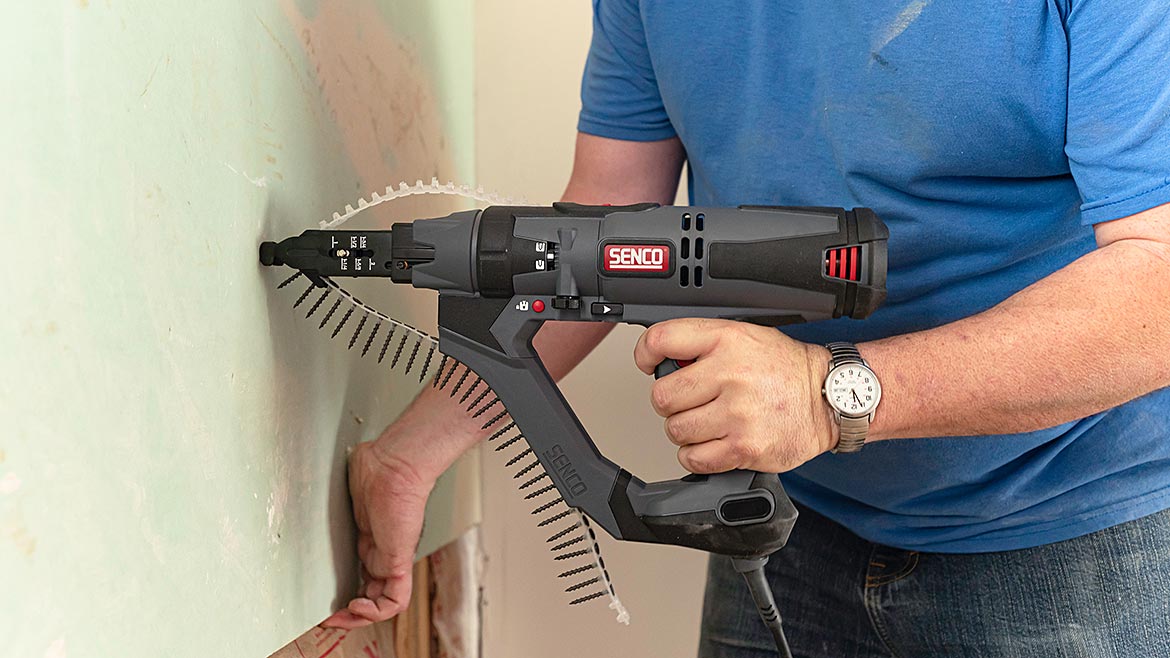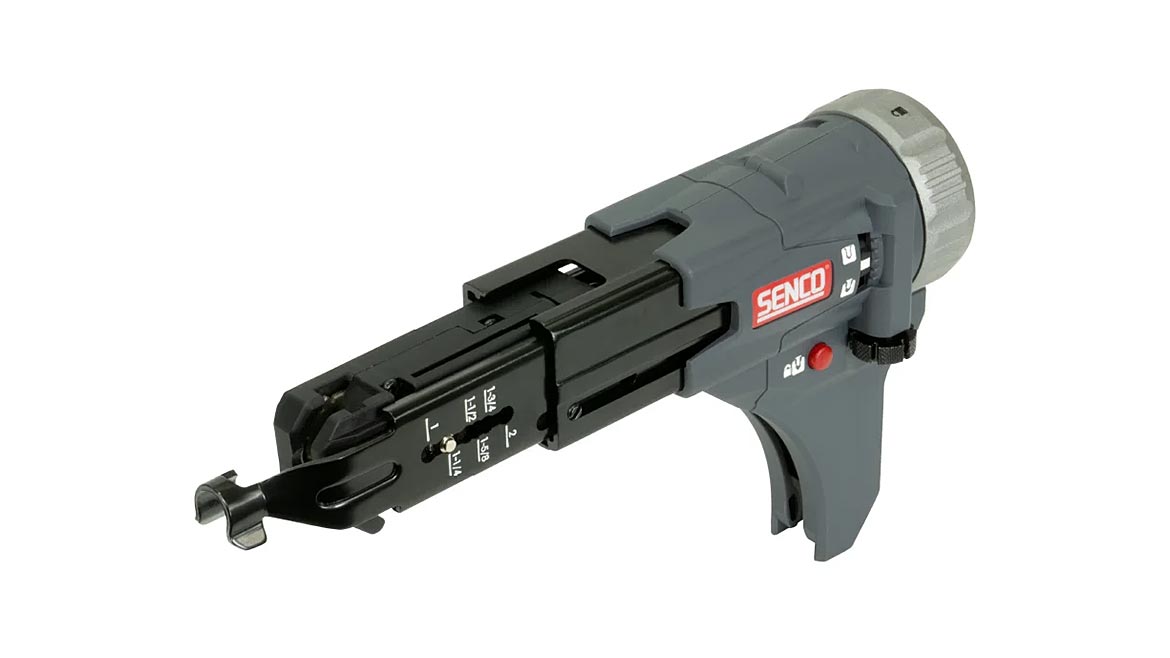Optimizing Wall and Ceiling Installations with Advanced Collated-Screw Systems
Save time and have more precision with a newer fastening system.

Building, efficiency, precision and reliability are non-negotiable, especially when it comes to wall and ceiling installation. The introduction of collated-screw systems has fundamentally transformed how contractors approach these tasks, streamlining installation processes, reducing labor time and enhancing overall productivity. Collated systems are designed for the demands of experts working with drywall, gypsum and even heavy-gauge steel, providing a significant competitive edge in both speed and versatility.
Evolution of the Collated-Screw Market
The collated-screw system market has expanded in response to growing demands for faster, more efficient fastening solutions. Traditional methods using loose screws, though effective, are labor-intensive and prone to interruptions, as screws are manually fed into the tool, increasing the likelihood of mistakes or delays. Collated systems, on the other hand, bundle screws into strips or coils, allowing for rapid, uninterrupted operation.

When installing drywall, for example, a standard 4-feet-by-8-feet sheet typically requires 32 screws. With a collated-screw system, professionals can drive all 32 screws in one go, eliminating reload time and enhancing throughput.
Compared to loose-screw systems, which are prone to human error and downtime due to manual reloading, collated-screw systems offer a dramatic increase in efficiency. Not only does the continuous feed system eliminate the risk of dropped screws and associated delays, but it also improves overall job quality by maintaining consistent depth and speed throughout the installation process.


Features to Look for in a System
For contractors who require precision and speed in equal measure, there are a few key features to look for when considering a new collated-screw system.
Adjustable Depth Control: Enables precise screw-depth settings for different materials, whether it’s standard drywall or tougher substrates, like heavy-gauge steel. This feature ensures consistent fastener depth, preventing over-penetration, which can damage materials, or under-penetration, which compromises structural integrity.
Corner-Fit Feed System: Allows the tool to excel in tight, hard-to-reach spaces. For professionals working on complex layouts or installations with challenging access points, this capability is a significant advantage. It allows for high-speed operation without sacrificing control or precision, a balance that is difficult to achieve with less advanced tools.
Versatility: For contractors that tackle diverse builds, the ability to accommodate a wide variety of fasteners can streamline their tool needs. Look for a flexible tool that can work across a range of materials and installation environments, allowing for a single, reliable system for all fastening needs. Whether securing wood, light-gauge steel or heavy-gauge steel, a tool’s adaptability ensures that professionals can tackle diverse applications without needing multiple tools.
Attachments: Don’t be afraid of attachments. Some manufacturers offer attachments that allow a tool to utilize a collated-screw system without requiring the purchase of an entirely new tool. This is a cost-effective way to expand your existing tool’s capabilities. For example, if a user already has a drywall screw gun, they can purchase an attachment at around one-third of the price of investing in a new tool.


Application in Framing: Precision at Lower Speed
Collated-screw systems are also indispensable in framing. For heavy-duty framing tasks, look for a tool with low-speed operation designed for driving screws into tougher materials, like heavy-gauge steel. The low-speed setting provides greater control in high-torque applications, ensuring that each screw is driven with the necessary force while maintaining precise depth.
As with drywall installation, the ability to fine-tune the depth of a drive is critical in framing work, where inconsistencies can lead to structural weaknesses or aesthetic issues. Collated-screw systems designed for framing not only maintain speed, but also ensure that each screw is driven accurately, improving both the speed and quality of the framing process.
In the competitive field of construction, the use of collated-screw systems has become a defining factor in optimizing wall and ceiling installations. Collated-screw systems offer unparalleled advantages in terms of speed, reliability and versatility, making them essential for professionals working with a range of materials and applications. Whether for drywall, gypsum or framing, collated-screw systems deliver superior performance, reducing project time and improving overall job quality. For experts in the field, investing in a high-quality collated-screw system is not just a choice—it’s a necessity for staying ahead in an increasingly demanding market.
Looking for a reprint of this article?
From high-res PDFs to custom plaques, order your copy today!




![WC1123-FEAT-Senco-p1FT-DS215-18v-METAL_DW1J[98].jpg Fasteners for Walls and Ceilings](https://www.wconline.com/ext/resources/2023/11/07/WC1123-FEAT-Senco-p1FT-DS215-18v-METAL_DW1J%5b98%5d.jpg?height=200&t=1699369714&width=200)

